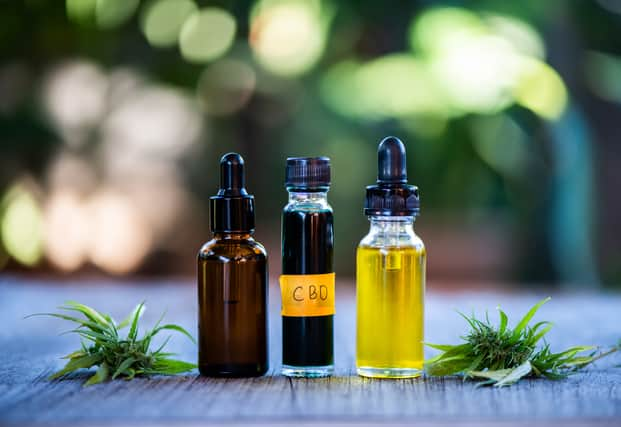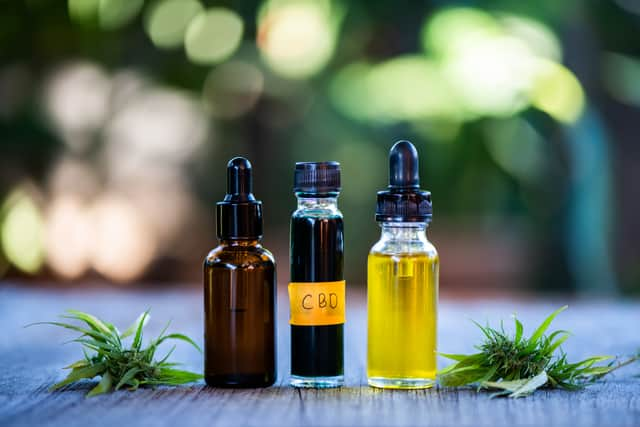CBD oil: Recommended daily intake of cannabidiol slashed to 10mg per day


The recommended maximum amount of cannabidiol (CBD) healthy adults should consume a day has dropped from 70mg to 10mg.
The Food Standards Agency (FSA) has issued new precautionary advice on CBD, recommending healthy adults should limit their consumption of CBD from food to 10mg per day, which is about four to five drops of five per cent oil. CBD sold as a food includes oils, drops or tinctures, gel capsules, sweets and confectionery, bread and other bakery products and drinks. The FSA said there was no “acute safety risk” by consuming more than 10mg of CBD a day based on available data - but above this level there was evidence of some adverse impacts on the liver and thyroid, with the higher the dose and the more often it is consumed increasing the risks.
Advertisement
Hide AdAdvertisement
Hide AdProfessor Robin May, chief scientific advisor at the FSA, said: “Our independent advisory committees have reviewed the safety assessments submitted by the industry as part of their novel food applications and we are advising that healthy adults should take no more than 10mg of CBD a day.


"The more CBD you consume over your lifetime, the more likely you are to develop long-term adverse effects, like liver damage or thyroid issues. The level of risk is related to how much you take, in the same way it is with some other potentially harmful products such as alcoholic drinks.
“We encourage consumers to check the CBD content on the product label to monitor their overall daily consumption of CBD and consider if they wish to make changes to how much they take based on this updated advice.”
The FSA encouraged consumers to monitor their daily consumption by checking the CBD content of the product and consider if they wished to change it in light of the updated advice. It continues to advise that CBD is not taken by people in vulnerable groups, including children, people taking medication who have not consulted a medical professional and those who are pregnant, breastfeeding or trying to conceive.
The FSA has confirmed that although the change will not be enforced on CBD oil food products - but that it will be working with manufacturers to reduce current levels.
Comment Guidelines
National World encourages reader discussion on our stories. User feedback, insights and back-and-forth exchanges add a rich layer of context to reporting. Please review our Community Guidelines before commenting.
